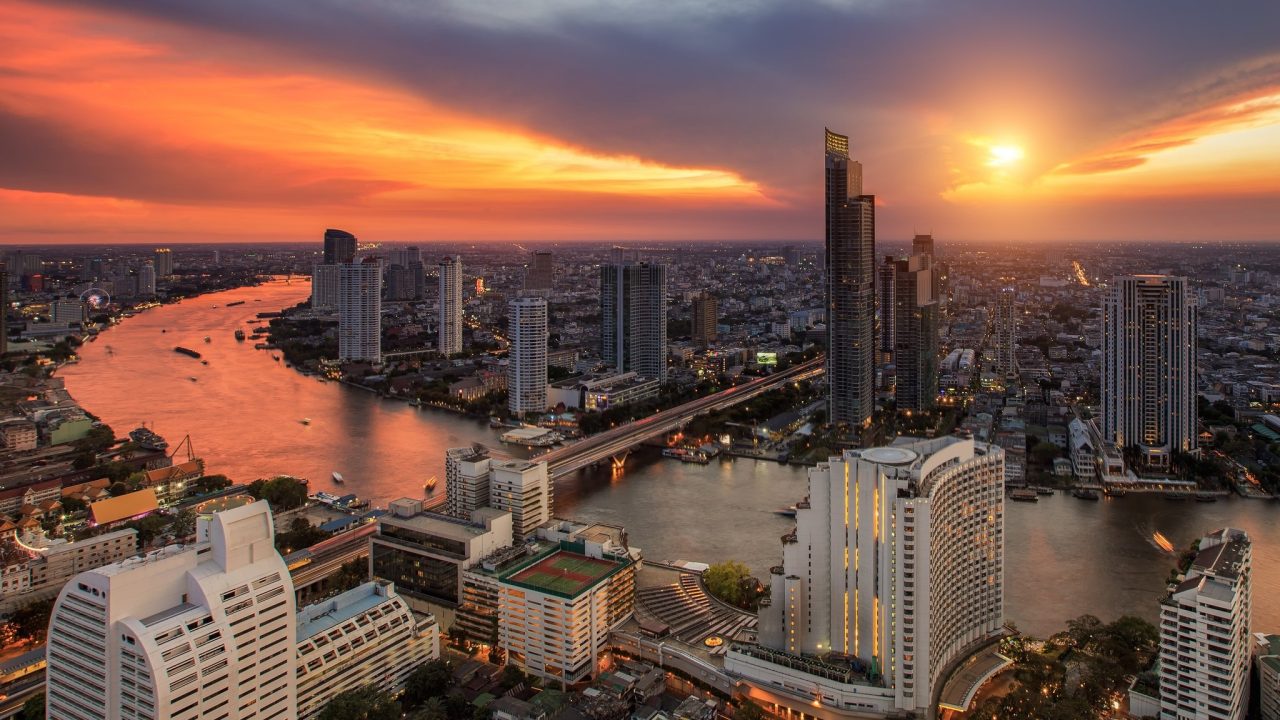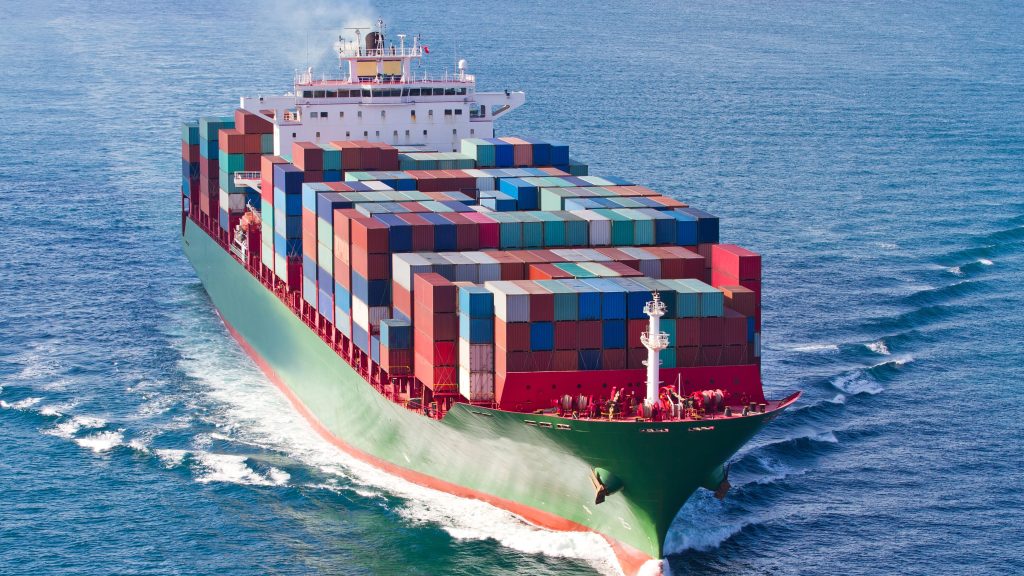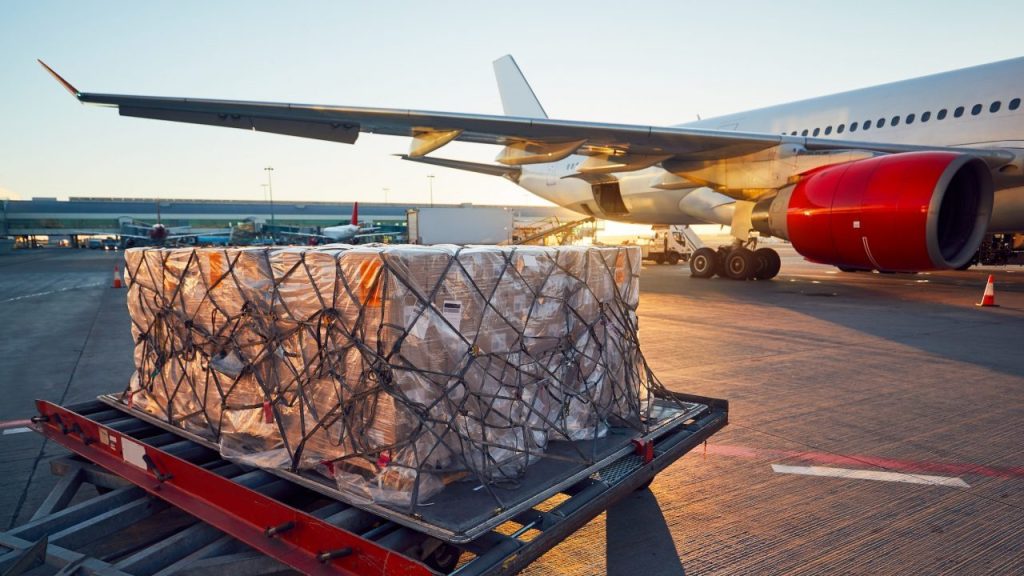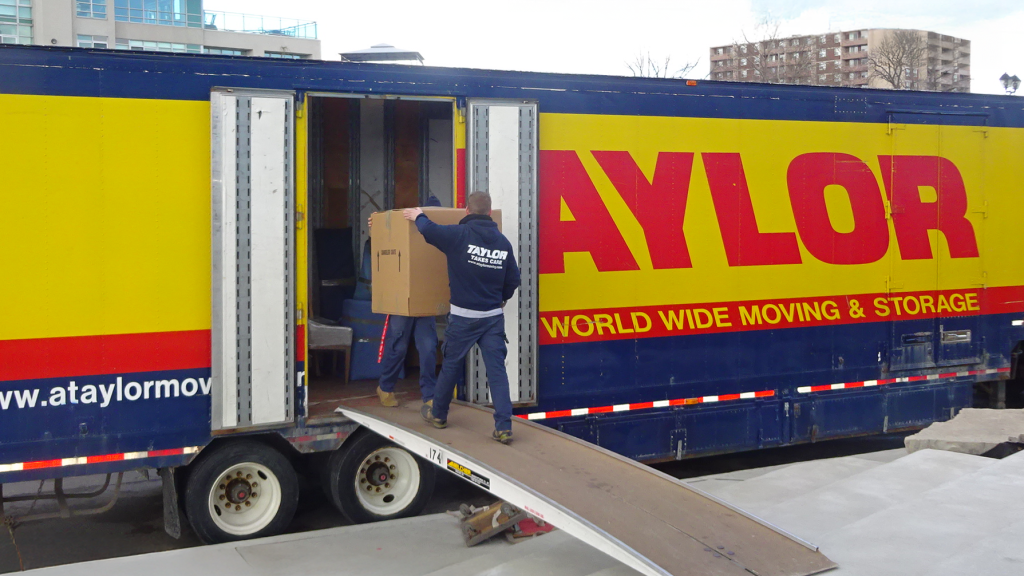
International Moving between Canada and Thailand
Moving overseas to or from Canada and Thailand? Learn more about packing, shipping, and customs to make your international relocation stress-free.
Planning Your Move
The first step in your international move is a tailored assessment of your needs. You can complete our AI-powered survey or meet with our consultants via Zoom, Google Meet, or in person. During this consultation, we’ll determine your packing requirements, customs considerations, and other key details.

Why Choose Taylor International?
We offer flexible, high-quality moving solutions through our extensive supply chain. As members of the International Association of Movers (IAM) and Fédération Internationale des Déménageurs Internationaux (FIDI), we provide access to a vast global network, ensuring reliable service with backup options for a seamless transition.
- Premium Service: Our FIDI-certified partners offer top-tier care.
- Budget-Friendly Options: IAM-certified movers provide reliable, cost-effective solutions.
- Balanced Approach: We customize packages to match your priorities.
- Diversified Supply Chain: No matter the option selected in the event of a major issue, we have back-up plans to ensure your move is performed with your customized plan.
- Extensive 3rd Party Partnerships: Our network also encompasses a vast array of 3rd party services from appliance disassembly, gym disassembly and other critical expert assistance to ensure your items are protected.
- Robust Cybersecurity: Our methods, procedures and systems enable your most sensitive information to be secure.
- Customs Mastery: Our international move managers work with you to ensure that you can navigate the complexities of customs, imports, exports and local regulations with the upmost care.
- Comprehensive Insurance: Taylor International provides full replacement value so you do not need to worry about the what ifs and instead focus on the will bes when you get to your destination. We will also source any services needed to render this service globally.
Our strict vetting process ensures only top-performing providers handle your shipment. If a supplier doesn’t meet our standards, they’re removed from our network—your satisfaction is our priority.
Choosing the Right Shipping Method
We help you select the most efficient transport option:

Sea Freight
The most economical choice for most moves.

Air Freight (LTL)
Faster delivery at a premium.

Hybrid Solutions
Essential items arrive by air, with the rest shipped via sea.
No matter your budget, we’ll find the best option for you.
Your Moving Journey
After your consultation, our specialists create a personalized moving plan and provide a detailed quote. Once confirmed, a dedicated moving coordinator will manage the process, ensuring smooth navigation of documentation, customs, and compliance requirements—avoiding delays or unexpected fees.
Relocating from Canada to Krabi offers a peaceful and nature-filled lifestyle in one of Thailand’s most scenic provinces. Known for its limestone cliffs, clear waters, and relaxed atmosphere, Krabi attracts retirees, digital nomads, and nature lovers looking to escape city life. While Krabi is less developed than Bangkok or Phuket, it provides a high quality of life with a lower cost of living, modern amenities, and a welcoming expat community.
Visa & Legal Considerations
Canadians can enter Thailand visa-free for up to 30 days, but long-term residents must apply for the appropriate Non-Immigrant Visa. Popular choices include the Retirement Visa (Non-OA or Non-OX) for those over 50, the Business Visa for professionals, and the Education Visa for Thai language students. The Thailand Elite Visa is another option for those seeking long-term residency with fewer renewal requirements. Upon arrival, expats must follow 90-day reporting rules, and those planning to work will need a work permit.
Housing & Cost of Living
Krabi offers a variety of housing options, from beachfront villas in Ao Nang and Klong Muang to affordable apartments in Krabi Town. Rental prices are significantly lower than in Canada, with modern one-bedroom apartments available for $300–$800 CAD per month. While daily expenses such as food, transportation, and entertainment are affordable, imported goods and private healthcare may be more expensive.
Transportation & Getting Around
Krabi does not have a public transit system, so most expats rely on motorbikes, private cars, or taxis. Many rent or buy motorbikes for convenience, though a valid Thai or international driver’s license is required. Tuk-tuks and songthaews (shared taxis) are available for short distances, and Grab (Thailand’s ride-hailing service) operates in major tourist areas.
Lifestyle & Cultural Adaptation
Krabi offers a laid-back lifestyle with plenty of outdoor activities, including island hopping, rock climbing, and diving. The expat community is smaller than in Phuket or Bangkok but remains welcoming, with social groups and co-working spaces available. While English is widely spoken in tourist areas, learning basic Thai will help with daily interactions. Thai culture values politeness and respect, so understanding customs like the wai greeting and temple etiquette is essential.
Krabi’s slower pace, natural beauty, and affordability make it an excellent choice for Canadians seeking a relaxed lifestyle in Thailand. With the right preparation, settling in can be a smooth and rewarding experience.
Relocating from Canada to Pattaya City offers a mix of vibrant city life, beachside relaxation, and a lower cost of living compared to major Canadian cities. Known for its nightlife, expat-friendly atmosphere, and modern infrastructure, Pattaya is an attractive destination for retirees, remote workers, and business professionals. However, adjusting to life in Thailand requires preparation in key areas such as visas, housing, transportation, and cultural adaptation.
Visa & Legal Considerations
Canadians can enter Thailand visa-free for 30 days, but long-term stays require a Non-Immigrant Visa. Common options include the Retirement Visa (Non-OA or Non-OX) for those over 50, the Business Visa for professionals, or the Education Visa for those learning Thai. The Thailand Elite Visa is also an option for those seeking long-term residency without frequent renewals. Expats must comply with 90-day reporting to Thai Immigration, and those working in Thailand will need a work permit.
Housing & Cost of Living
Pattaya offers a range of housing options, from high-rise condominiums along Pattaya Beach Road to quieter residential areas like Jomtien and Naklua. Rental prices are significantly lower than in Canadian cities, with modern condos available for $400–$1,000 CAD per month. Pattaya provides affordable local markets, dining, and entertainment, but imported goods and private schooling can be more expensive.
Transportation & Getting Around
Pattaya does not have a mass transit system like Bangkok, but getting around is easy with Baht buses (songthaews), motorbike taxis, and Grab (Thailand’s ride-hailing app). Many expats opt to rent or buy a motorbike or car, though a valid Thai or international driver’s license is required. Traffic can be congested, especially in tourist-heavy areas, so choosing a home near work or daily conveniences is beneficial.
Lifestyle & Cultural Adaptation
Pattaya is home to a large expat community, with social clubs, networking groups, and activities that make integration easier. The city offers a variety of entertainment, from golf courses and water sports to international restaurants and shopping malls. Learning basic Thai and understanding cultural norms—such as the wai greeting and temple etiquette—will enhance interactions with locals. Pattaya also boasts high-quality healthcare, with Bangkok Hospital Pattaya and Pattaya International Hospital offering excellent medical services at lower costs than in Canada.
With its mix of modern conveniences, beachside living, and affordability, Pattaya is an attractive option for Canadians seeking a relaxed yet lively lifestyle in Thailand. With proper planning, the transition can be smooth and rewarding.
Relocating from Canada to Phuket offers an exciting opportunity to enjoy Thailand’s largest island, known for its stunning beaches, vibrant expat community, and tropical lifestyle. While the move comes with many benefits, adjusting to a new environment requires preparation in areas such as visa requirements, housing, transportation, and cultural adaptation.
Visa & Legal Considerations
Canadians planning to stay in Phuket long-term must obtain the appropriate visa. Short-term visitors can enter Thailand visa-free for up to 30 days, but those planning to work, retire, or live in Phuket long-term should apply for a Non-Immigrant Visa (such as the Retirement Visa (Non-OA or Non-OX), Business Visa, or Education Visa). Another option is the Thailand Elite Visa, which grants long-term residency with multiple-entry privileges. After arrival, expats must comply with 90-day reporting and, if working, obtain a work permit.
Housing & Cost of Living
Phuket offers a wide range of accommodation options, from luxury beachfront villas in Kamala and Surin Beach to more affordable apartments in Rawai, Chalong, or Kathu. Rental prices vary significantly depending on location, with modern one-bedroom condos ranging from $500–$1,200 CAD per month. Compared to major Canadian cities like Toronto or Vancouver, the cost of living in Phuket is significantly lower, with affordable dining, transportation, and entertainment. However, imported goods and international schooling can be costly.
Transportation & Getting Around
Unlike Bangkok, Phuket does not have a public transit system. Most residents rely on motorbikes, rental cars, taxis, and ride-hailing services like Grab. Motorbike rentals are inexpensive, but a valid Thai or international driver’s license is required. Traffic can be challenging, especially in peak tourist seasons, so choosing a home close to daily conveniences can help minimize commuting time.
Lifestyle & Cultural Adaptation
Phuket’s diverse expat community makes it easy to connect with like-minded individuals. The island offers a mix of modern conveniences, outdoor activities, and a relaxed tropical atmosphere. Learning basic Thai phrases and respecting local customs—such as temple etiquette and the wai greeting—will help in daily interactions. Phuket is also known for its world-class healthcare facilities, with private hospitals offering high-quality medical care at a fraction of Canadian prices.
With its scenic beauty, warm climate, and strong expat network, Phuket is an excellent destination for Canadians looking to experience a tropical lifestyle while still having access to modern amenities. Proper planning and understanding of the local environment will ensure a smooth and enjoyable transition.
Relocating from Canada to Chiang Mai is an exciting opportunity, whether for retirement, remote work, or a lifestyle change. Known for its laid-back atmosphere, stunning mountain views, and affordable cost of living, Chiang Mai is one of Thailand’s most expat-friendly cities. However, adjusting to a new country comes with challenges, including visa requirements, housing, transportation, and cultural differences.
Visa & Legal Considerations
Before moving, securing the right visa is essential. Canadians can enter Thailand visa-free for short stays, but long-term residents will need a Non-Immigrant Visa based on their purpose of stay, such as a Retirement Visa (Non-OA or Non-OX), Education Visa, or Business Visa for digital nomads and entrepreneurs. Many retirees and remote workers opt for the Thailand Elite Visa, which offers extended residency benefits. After arrival, expats must follow Thailand’s 90-day reporting rule and, in some cases, obtain a work permit if they plan to work locally.
Housing & Cost of Living
Chiang Mai offers a range of housing options, from modern condominiums in the Nimmanhaemin area to traditional Thai houses in quieter neighborhoods like Hang Dong and San Sai. Rent is significantly lower than in major Canadian cities, with modern one-bedroom apartments available for $300–$600 CAD per month. Utilities, groceries, and dining out are also much more affordable, making Chiang Mai a top choice for expats seeking a high quality of life on a budget.
Transportation & Daily Life
Unlike Bangkok, Chiang Mai does not have a mass transit system, so most residents rely on songthaews (red trucks), motorbikes, or bicycles for transportation. Many expats rent or buy a scooter, but a valid Thai or international driver’s license is required. Ride-hailing services like Grab are widely available, making transportation more convenient.
Culture & Expat Community
Chiang Mai has a welcoming expat community, with many social events, networking groups, and co-working spaces catering to digital nomads. Learning basic Thai phrases can enhance daily interactions, though English is widely spoken in tourist and expat areas. Respect for Thai customs, including temple etiquette and the traditional wai greeting, is essential for integrating into the local culture.
With its blend of affordability, rich culture, and natural beauty, Chiang Mai is an excellent destination for Canadians looking to experience Thailand at a more relaxed pace. With proper planning, settling in can be a smooth and rewarding experience.
Relocating from Canada to Bangkok is an exciting transition that requires careful planning to ensure a smooth settling-in process. Bangkok, Thailand’s vibrant capital, is known for its bustling city life, rich culture, and affordable cost of living. However, adapting to the city’s climate, transportation, housing, and bureaucracy can present challenges for newcomers.
Visa & Legal Requirements
Before moving, securing the right visa is essential. Canadians can enter Thailand visa-free for short visits, but those planning to work or stay long-term must apply for a Non-Immigrant Visa (such as a Business Visa, Retirement Visa, or Education Visa). Upon arrival, expats will need to obtain a Thai Work Permit (if employed), followed by a Visa Extension and 90-day reporting to Thai Immigration. Some may also consider the Thailand Elite Visa, which provides long-term residency benefits.
Finding a Home in Bangkok
Housing options in Bangkok vary widely, from luxury condominiums in expat-friendly areas like Sukhumvit and Sathorn to more affordable apartments further from the city center. Many expats choose serviced apartments for convenience, as they include amenities such as cleaning, security, and sometimes even shuttle services. Rental prices are generally lower than in Canada, but deposits (typically two months’ rent) and lease agreements require careful review.
Cost of Living & Banking
Bangkok’s cost of living is significantly lower than in major Canadian cities like Toronto or Vancouver. Food, transportation, and entertainment are relatively affordable, though imported goods and international schooling can be expensive. Opening a Thai bank account is recommended for easier transactions—banks like Bangkok Bank and SCB offer accounts for expats with the right visa.
Transportation & Daily Life
Bangkok’s public transport system includes the BTS Skytrain, MRT subway, and an extensive network of buses and taxis. Traffic congestion is a major issue, so many expats rely on public transport or motorbike taxis for efficiency. Mobile apps like Grab (Thailand’s version of Uber) are widely used for commuting.
Cultural Adaptation & Social Life
Adjusting to Thai culture involves understanding local etiquette, such as the “wai” greeting and respect for the monarchy. Learning basic Thai phrases can help with daily interactions. Bangkok has a thriving expat community, with social groups, co-working spaces, and networking events available for professionals and families.
With the right preparation, moving to Bangkok from Canada can be an exciting and rewarding experience, offering a dynamic lifestyle in one of Southeast Asia’s most energetic cities.
Relocating from Thailand to Vancouver is an exciting opportunity to experience life in one of Canada’s most dynamic and multicultural cities. Known for its breathtaking natural beauty, strong economy, and diverse population, Vancouver is a popular destination for Thai expatriates. However, settling in requires careful planning, from securing visas to adapting to the cost of living and climate.
Visa and Immigration Requirements
Thai citizens moving to Vancouver need to obtain the appropriate visa based on their purpose for relocation. The Express Entry system is a common pathway for skilled workers, while the British Columbia Provincial Nominee Program (BC PNP) offers additional opportunities for those with job offers in the province. Students must apply for a study permit, and workers should ensure they have the necessary documentation before arrival.
Housing and Cost of Living
Vancouver is one of the most expensive cities in Canada, particularly when it comes to housing. Rent for a one-bedroom apartment in the city center typically ranges from CAD 2,500–3,500 per month, while more affordable options can be found in surrounding areas like Burnaby, Richmond, and New Westminster. Many newcomers opt for shared housing or short-term rentals before securing a long-term lease.
Weather and Clothing
Vancouver has a mild coastal climate compared to the rest of Canada, making it easier for Thai newcomers to adjust. Winters are rainy rather than snowy, with temperatures rarely dropping below freezing. However, waterproof clothing, including rain jackets and boots, is essential. Summers are pleasant, with temperatures averaging around 20–25°C, making outdoor activities enjoyable.
Cultural and Community Support
Vancouver has a vibrant Thai community, with numerous Thai grocery stores, restaurants, and cultural organizations. Popular eateries like Maenam and Thai Basil offer authentic Thai cuisine. Additionally, Wat Buddhapanya Vancouver, a Thai Buddhist temple, serves as a cultural and religious hub for Thai expatriates. Multicultural organizations such as SUCCESS and the Immigrant Services Society of BC (ISSofBC) provide essential newcomer services, including language support and job assistance.
Healthcare and Insurance
New residents must register for the Medical Services Plan (MSP), which covers essential medical care. There is a waiting period of up to three months, so securing private health insurance for the initial months is recommended.
Work and Education
Vancouver has a strong economy driven by technology, film, tourism, and finance. Skilled professionals may find opportunities in these industries, while job seekers can explore online job boards and employment agencies. The city also has top-ranked universities, including the University of British Columbia (UBC) and Simon Fraser University (SFU), making it an excellent destination for students.
Moving to Vancouver from Thailand requires preparation, but with the right support networks, newcomers can enjoy a high quality of life in this stunning and diverse city.
Relocating from Thailand to Edmonton offers a unique opportunity to experience life in one of Canada’s most affordable and welcoming cities. As the capital of Alberta, Edmonton is known for its strong economy, high quality of life, and access to nature. However, adjusting to a new country involves careful planning, from securing visas to adapting to the climate and culture.
Visa and Immigration Requirements
Before moving to Edmonton, Thai citizens must obtain the appropriate visa based on their reason for relocation. The Express Entry system is a common pathway for skilled workers, while the Alberta Immigrant Nominee Program (AINP) provides additional options for those with job offers in the province. International students must secure a study permit, and work permit applicants should ensure they meet employer and government requirements.
Housing and Cost of Living
Edmonton offers a lower cost of living than many other major Canadian cities, making it an attractive destination for newcomers. Rent for a one-bedroom apartment in the city center typically ranges from CAD 1,300–1,800 per month, while suburban areas like Mill Woods, Terwillegar, and Clareview offer more affordable options. Many newcomers choose to rent before committing to homeownership.
Weather and Clothing
One of the biggest adjustments for Thai newcomers is Edmonton’s cold winters, where temperatures can drop to -30°C or lower. The city experiences a dry climate with long winters and short, warm summers. Proper winter clothing, including insulated jackets, boots, and gloves, is necessary for comfort and safety. However, Edmonton also boasts one of Canada’s sunniest climates, with long daylight hours in summer.
Cultural and Community Support
Edmonton is a multicultural city with a welcoming environment for newcomers. While the Thai community is smaller compared to larger cities like Toronto, there are Thai grocery stores, restaurants, and cultural organizations to help newcomers stay connected to their heritage. The Edmonton Buddhist Research Institute and local community groups provide social and religious support. Newcomer assistance programs, such as the Edmonton Immigrant Services Association (EISA), offer valuable resources for integration.
Healthcare and Insurance
Alberta residents must register for the Alberta Health Care Insurance Plan (AHCIP), which covers essential medical services. Permanent residents can apply immediately, while temporary visa holders should check their eligibility and consider private insurance if necessary.
Work and Education
Edmonton’s economy is diverse, with key industries including oil and gas, technology, healthcare, and education. Job seekers can explore opportunities through employment centers, online job portals, and government programs. For families, the city offers high-quality public and private schools, with English as a Second Language (ESL) support available for students who need additional language assistance.
With its affordable living, strong job market, and welcoming atmosphere, Edmonton is a great place for Thai newcomers to settle. Proper planning and access to support networks can ensure a smooth and successful transition to life in Canada.
Relocating from Thailand to Calgary is an exciting journey that comes with unique opportunities and challenges. As one of Canada’s fastest-growing cities, Calgary offers a strong job market, a high quality of life, and stunning natural surroundings. However, Thai newcomers should prepare for cultural, climatic, and logistical adjustments to ensure a smooth transition.
Visa and Immigration Requirements
Thai citizens moving to Calgary must secure the appropriate visa, whether for work, study, or permanent residency. The Express Entry system is ideal for skilled workers, while provincial programs like the Alberta Immigrant Nominee Program (AINP) provide additional pathways. Temporary residents, such as students or workers, must apply for the relevant permits and ensure they meet financial and documentation requirements before arrival.
Housing and Cost of Living
Calgary’s housing market is more affordable compared to other major Canadian cities like Toronto and Vancouver. The average rent for a one-bedroom apartment in the city center is around CAD 1,600–2,000 per month, while suburban areas offer lower prices. Popular neighborhoods for newcomers include Brentwood, Signal Hill, and Dalhousie, which provide family-friendly environments and easy access to public transport.
Weather and Clothing
One of the biggest adjustments for Thai expats is Calgary’s climate. Winters are long and cold, with temperatures dropping as low as -30°C. The city experiences Chinook winds, which bring temporary warm spells during winter. Investing in high-quality winter clothing, such as insulated jackets, gloves, and boots, is essential. Summers are mild and enjoyable, making it easier to explore outdoor activities.
Cultural and Community Support
Calgary has a small but growing Thai community, with Thai restaurants, grocery stores, and cultural organizations offering support. The Thai Buddhist Temple of Calgary provides a familiar cultural and spiritual space. Additionally, multicultural groups and newcomer services, such as the Calgary Immigrant Educational Society (CIES), help expatriates integrate smoothly.
Healthcare and Insurance
New residents in Alberta must apply for the Alberta Health Care Insurance Plan (AHCIP), which covers essential medical services. There is no waiting period for permanent residents, but temporary residents may need private insurance until they qualify.
Work and Education
Calgary’s economy is driven by industries such as energy, finance, technology, and construction. Job seekers can explore opportunities through local job boards, recruitment agencies, and government employment programs. For families, the city offers excellent public and private schools, with English as a Second Language (ESL) programs available for non-native speakers.
Moving to Calgary from Thailand requires preparation, but with the right resources and support, newcomers can enjoy a comfortable and successful transition into Canadian life.
Relocating from Thailand to Toronto is an exciting transition, but it requires careful planning to ensure a smooth move and successful settlement. As Canada’s largest city, Toronto offers a multicultural environment, strong economic opportunities, and a high quality of life. However, there are several key factors Thai expatriates should consider when making the move.
Visa and Immigration Requirements
Before moving, Thai citizens need to secure the appropriate visa. Whether relocating for work, study, or family reunification, the most common visa types include the Express Entry system (for skilled workers), work permits, and student visas. It’s essential to gather required documents, including proof of funds, medical exams, and police clearance, well in advance.
Housing and Cost of Living
Toronto’s housing market is competitive, with rental costs varying significantly by neighborhood. Newcomers often start with short-term accommodations before securing a long-term rental. Popular areas for new arrivals include North York, Scarborough, and Etobicoke, which offer more affordable housing compared to downtown. Expect to pay between CAD 2,000–3,000 per month for a one-bedroom apartment in central locations.
Weather and Clothing
One of the biggest adjustments for Thai newcomers is the climate. Toronto experiences all four seasons, with winter temperatures dropping as low as -20°C. Investing in warm clothing, including insulated jackets, gloves, and boots, is necessary for comfort and safety.
Cultural and Community Support
Toronto has a strong Thai community, with organizations like the Thai Society of Ontario offering networking and cultural events. Thai grocery stores and restaurants, such as Pai and Salad King, help newcomers stay connected to their culture. Additionally, many Buddhist temples, such as Wat Yanviriya, offer spiritual and community support.
Healthcare and Insurance
New residents in Ontario must apply for the Ontario Health Insurance Plan (OHIP), which covers essential medical services. There is a waiting period of up to three months, so obtaining private health insurance upon arrival is recommended.
Work and Education
Toronto is home to major industries such as finance, technology, and healthcare. Newcomers with in-demand skills may find job opportunities quickly, while others may need to gain Canadian work experience. For families, the city offers excellent schools, including international and bilingual programs.
Settling in Toronto requires planning, but with the right resources and preparation, Thai newcomers can enjoy a fulfilling life in this vibrant Canadian city.